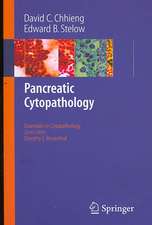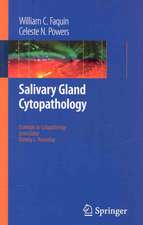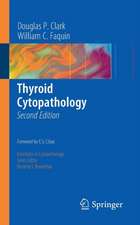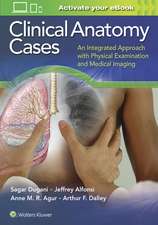Tissue Hypoxia and Ischemia: Advances in Experimental Medicine and Biology, cartea 78
Editat de Martin Reivichen Limba Engleză Paperback – 27 dec 2012
Din seria Advances in Experimental Medicine and Biology
- 9%
 Preț: 719.60 lei
Preț: 719.60 lei - 20%
 Preț: 691.93 lei
Preț: 691.93 lei - 5%
 Preț: 717.00 lei
Preț: 717.00 lei - 5%
 Preț: 716.28 lei
Preț: 716.28 lei - 5%
 Preț: 717.20 lei
Preț: 717.20 lei - 15%
 Preț: 640.24 lei
Preț: 640.24 lei - 5%
 Preț: 1113.83 lei
Preț: 1113.83 lei - 5%
 Preț: 715.71 lei
Preț: 715.71 lei - 5%
 Preț: 820.43 lei
Preț: 820.43 lei - 15%
 Preț: 641.38 lei
Preț: 641.38 lei - 5%
 Preț: 716.28 lei
Preț: 716.28 lei - 5%
 Preț: 523.99 lei
Preț: 523.99 lei - 5%
 Preț: 1031.00 lei
Preț: 1031.00 lei - 5%
 Preț: 717.00 lei
Preț: 717.00 lei - 5%
 Preț: 715.35 lei
Preț: 715.35 lei - 20%
 Preț: 1161.71 lei
Preț: 1161.71 lei - 5%
 Preț: 1170.51 lei
Preț: 1170.51 lei - 18%
 Preț: 1119.87 lei
Preț: 1119.87 lei - 5%
 Preț: 1288.48 lei
Preț: 1288.48 lei - 5%
 Preț: 1164.67 lei
Preț: 1164.67 lei - 5%
 Preț: 1101.73 lei
Preț: 1101.73 lei - 18%
 Preț: 1123.67 lei
Preț: 1123.67 lei - 5%
 Preț: 1435.64 lei
Preț: 1435.64 lei - 20%
 Preț: 1044.10 lei
Preț: 1044.10 lei - 18%
 Preț: 946.39 lei
Preț: 946.39 lei - 5%
 Preț: 292.57 lei
Preț: 292.57 lei - 18%
 Preț: 957.62 lei
Preț: 957.62 lei - 18%
 Preț: 1235.76 lei
Preț: 1235.76 lei - 5%
 Preț: 1231.55 lei
Preț: 1231.55 lei - 5%
 Preț: 1292.30 lei
Preț: 1292.30 lei - 5%
 Preț: 1102.10 lei
Preț: 1102.10 lei - 18%
 Preț: 1132.81 lei
Preț: 1132.81 lei - 5%
 Preț: 1165.19 lei
Preț: 1165.19 lei - 5%
 Preț: 1418.48 lei
Preț: 1418.48 lei - 5%
 Preț: 1305.63 lei
Preț: 1305.63 lei - 18%
 Preț: 1417.72 lei
Preț: 1417.72 lei - 18%
 Preț: 1412.99 lei
Preț: 1412.99 lei - 24%
 Preț: 806.16 lei
Preț: 806.16 lei - 18%
 Preț: 1243.29 lei
Preț: 1243.29 lei - 5%
 Preț: 1429.44 lei
Preț: 1429.44 lei - 5%
 Preț: 1618.70 lei
Preț: 1618.70 lei - 5%
 Preț: 1305.12 lei
Preț: 1305.12 lei - 18%
 Preț: 1124.92 lei
Preț: 1124.92 lei - 5%
 Preț: 1097.54 lei
Preț: 1097.54 lei - 15%
 Preț: 649.87 lei
Preț: 649.87 lei - 5%
 Preț: 1097.54 lei
Preț: 1097.54 lei - 18%
 Preț: 945.79 lei
Preț: 945.79 lei - 5%
 Preț: 1123.16 lei
Preț: 1123.16 lei
Preț: 724.50 lei
Preț vechi: 762.64 lei
-5% Nou
Puncte Express: 1087
Preț estimativ în valută:
138.68€ • 150.68$ • 116.56£
138.68€ • 150.68$ • 116.56£
Carte tipărită la comandă
Livrare economică 21 aprilie-05 mai
Preluare comenzi: 021 569.72.76
Specificații
ISBN-13: 9781461590378
ISBN-10: 146159037X
Pagini: 400
Ilustrații: XIV, 385 p.
Dimensiuni: 170 x 244 x 21 mm
Greutate: 0.64 kg
Ediția:Softcover reprint of the original 1st ed. 1977
Editura: Springer Us
Colecția Springer
Seria Advances in Experimental Medicine and Biology
Locul publicării:New York, NY, United States
ISBN-10: 146159037X
Pagini: 400
Ilustrații: XIV, 385 p.
Dimensiuni: 170 x 244 x 21 mm
Greutate: 0.64 kg
Ediția:Softcover reprint of the original 1st ed. 1977
Editura: Springer Us
Colecția Springer
Seria Advances in Experimental Medicine and Biology
Locul publicării:New York, NY, United States
Public țintă
ResearchCuprins
The Biochemistry of Physiologic Oxygen Sensors.- What is a molecular oxygen sensor? What is a transduction process?.- The oxygen sensing characteristics of microsomal enzymes.- Oxygen sensing heme proteins: monoxygenases, myoglobin and hemoglobin.- Peroxisomal enzymes and oxygen metabolism in liver.- Mitochondrial production of superoxide radical and hydrogen peroxide.- Mechanism of Oxygen Sensing in Tissues.- Chemoreception and transduction on neuronal models.- Oxygen tension sensors in vascular smooth muscle.- Comments on: oxygen tension sensors in vascular smooth muscle.- Mechanism of oxygen induced contraction of ductus arteriosus.- Prostaglandins and the control of muscle tone in the ductus arteriosus.- The sensing of oxygen tension in the pulmonary circulation.- The sensing of oxygen tension in the pulmonary circulation. Discussion.- Circulatory effects of tissue oxygen tension sensors.- Bioassay and pharmacologic evaluation of the adenosine hypothesis.- Mechanism of Oxygen Sensing in Tissues.- Introductory remarks: oxygen linked response of carotid chemoreceptors.- Convergence of stimuli in arterial chemoreceptors.- Intracellular studies of carotid body cells: effects of temperature, “natural” stimuli and chemical substances.- Tissue PO2 in the cat carotid body and related functions.- Some aspects of localization, depletion, uptake and turnover of catecholamines by glomus cells of the rat carotid body.- Catecholamines and 3?,5? cyclic amp in carotid body chemoreception in the cat.- Circulatory and Metabolic Aspects of Cerebral Hypoxia-Ischemia.- Metabolic aspects of cerebral hypoxia-ischemia.- Discussion: metabolic aspects of cerebral hypoxia-ischemia.- Regional changes in metabolism in hypoxia-ischemia.- Cyclic nucleotide levels in the gerbil cerebralcortex, cerebellum and spinal cord following bilateral ischemia.- Changes in PO2 and ion fluxes in cerebral hypoxia-ischemia.- Comments on: changes in PO2 and ion fluxes in cerebral hypoxia-ischemia.- Events marking irreversible injury.- Cerebral hemodynamic and metabolic alterations in stroke.- Cerebral hemodynamic and metabolic alterations in stroke: formal discussion of paper by Dr. Martin Reivich, et al..- Cerebral hemodynamic and metabolic alterations in hypovolemic shock.- Altered mitochondrial metabolism in circulatory shock.- Discussion of Presentation by A.G.B. Kovach.- Participants.







